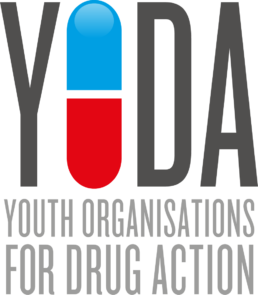Workshops 2017
Tools and Methods
Applications of non-formal education methods in the work with young people in the field of drugs.
There are plenty of definitions of non-formal education (NFE). A common denominator for most of them is that it is delivered out of the institutionalized schooling system, using methods of active participation of those being educated, or rather educating themselves. It is fundamentally different from the traditional, vertical forms of education, where the knowledge and skills and passed from the top (teacher, professor etc.) to the bottom (students, pupils). Non-formal education emphasizes the exchange of knowledge and skills between all the people participating in it, in a horizontal way, where the education goes in all directions.
Non-formal education methods are extremely useful in any situation, where you assume people that you are working with at that time, can bring some additional experience to the table, which will be valuable both to you and other actors involved.
SALTO Youth toolbox is a great place to look for specific non-formal education methods that can be applied in your activities.
While non-formal education is different from “traditional” education methods, and encourages free exchange of ideas between people participating, it doesn’t mean it needs to be chaotic. Any activities should be facilitated by people, who will keep their direction on the topic, that was meant for them, and at the same time won’t limit participants input.
From our perspective, the field of drugs and young people offers a lot of opportunities to successfully apply NFE methods, to the benefit of all sides participating.
One reason is, that the quick developments of new phenomenon in the field of drugs require quick and efficient cooperation between people from different organizations and countries. NFE methods that involved direct, horizontal learning between participants lets them expand not only those skills and knowledge that are strictly related to the field of drugs, but also other, essential for effective cooperation and thus improvement of professional qualifications: ability to work in group, to communicate effectively in foreign languages and with people from different countries and cultures.
The fact that NFE is conducted in informal environment opens more opportunities to utilize it in the drug NGOs working with young people. If you want to:
- Enable young people you work with to educate themselves in the environment different than the formal education system
- Make the education process interesting and engaging for them
- Learn from them yourself
- Improve skills and knowledge different than just one strictly related to the topic you are working on – like group work and communication
You can consider use of non-formal education methods in the areas such as:
- Drug education and prevention, either at school, where you may come as a NGO to run after-classes activity, or in other environment.
- Party outreach, through peer education, where you will encourage young partygoers to share their knowledge with other people at the party.
- Street outreach, where through the NFE you can reach client who are not participating in the formal education system, and where you too can learn from them about new trends and challenges
- To improve the professional qualifications of people working at your organization, on any topic from fundraising to drug checking
To find more about specific tools you can use in NFE, please see this publication by Salto Youth.
If you are you could use some advice on how to utilize NFE in some particular activities you are planning, please don’t hesitate to contact us!
You can also see some of our advice on work with volunteers at drug organizations and young people using drugs in the recommendations from our workshops from 2016.

